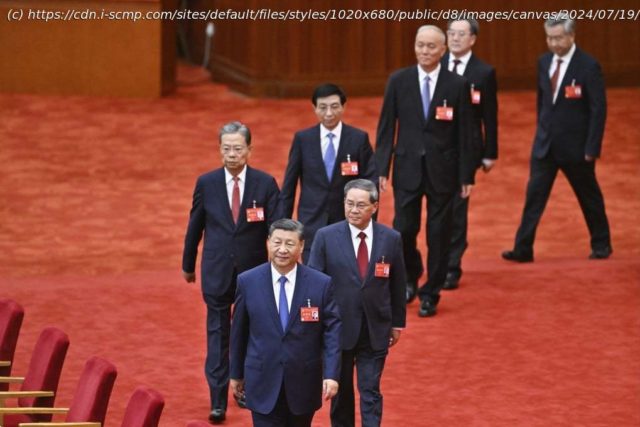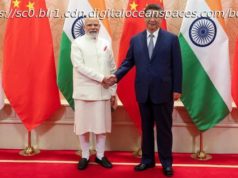The stock market was let down in its search for short-term fixes, as benchmark indexes declined in Shanghai, Shenzhen and Hong Kong after the communique.
China’ Communist Party has published a communique after wrapping up its four-day closed-door third plenum for its decision-making Central Committee. Investment banks rushed to read between the lines for clues about the trajectory of the world’s second-largest economy.
Offering little in the way of details, the communique outlined China’s broad reform package over the medium and longer term, focusing on technology innovation, the new-quality productive force, risk control and supply-chain security. The words and policy framework are very consistent with what top policymakers emphasised before the high-stakes gathering.
Still, the stock market was let down in its search for short-term fixes, as benchmark indexes declined in Shanghai, Shenzhen and Hong Kong after the communique. The renminbi extended its depreciation against the US dollar.
One bright spot of the plenum was the government’s specific reference to China’s 2024 economic growth target, pegged at about 5 per cent, raising speculations that a raft of policies to support and stimulate the economy will be released. A meeting of the party’s all-powerful political bureau scheduled in late July may be the occasion for the policy details.
Here are the takes from the world’s major investment banks and asset managers on the third plenum:
Goldman Sachs’ analysts led by Lisheng Wang and Hui Shan:
“We view the readout as largely in line regarding long-term reform direction, but slightly more positive in terms of near-term macro policy stance. We believe more demand-side easing measures – especially on the fiscal and housing fronts – are necessary to secure the full-year “around 5 per cent” real GDP growth target, and view the July Politburo meeting (around month-end) as a potential window for more easing rhetoric and measures.”
HSBC Holdings’ Greater China Chief Economist Liu Jing:
“China will turn increasingly towards supporting advanced technology development to increase productivity while improving people’s livelihoods, [which] should help to fuel more consumption-led growth. Fiscal reforms and the management of ongoing risks such as local government debt and the property sector should help free up more resources for higher productivity areas.
Домой
United States
USA — China What do investment banks think of the Chinese Communist Party’s long-overdue third...






